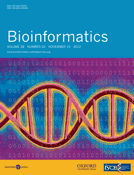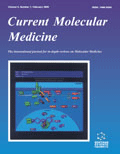
Metabolomics
Scope & Guideline
Connecting Metabolism to Clinical Outcomes
Introduction
Aims and Scopes
- Metabolomic Profiling:
The journal emphasizes comprehensive metabolomic profiling using various analytical techniques such as LC-MS, GC-MS, and NMR to identify and quantify metabolites in biological samples. - Application in Disease Research:
Research published in 'Metabolomics' often focuses on the application of metabolomic techniques in understanding disease mechanisms, identifying biomarkers, and exploring therapeutic interventions across a range of conditions including cancer, metabolic syndromes, and infectious diseases. - Methodological Innovations:
The journal supports the development of novel methodologies and bioinformatics tools for metabolomics, enhancing data analysis, metabolite identification, and integration with other omics technologies. - Environmental and Agricultural Metabolomics:
There is a growing interest in applying metabolomics to environmental science and agriculture, studying the effects of environmental changes on metabolic profiles in plants and animals. - Interdisciplinary Approaches:
The journal promotes interdisciplinary research that combines metabolomics with genomics, proteomics, and other fields to provide a holistic understanding of biological processes.
Trending and Emerging
- Machine Learning and Data Integration:
The integration of machine learning techniques with metabolomics for predictive modeling and data analysis is rapidly gaining traction, facilitating the discovery of complex patterns in metabolomic data. - Metabolomics in Personalized Medicine:
There is a growing focus on the application of metabolomics in personalized medicine, particularly in tailoring treatments based on individual metabolic profiles, especially in chronic diseases such as diabetes and cancer. - Impact of Lifestyle and Nutrition:
Research exploring the effects of diet, exercise, and lifestyle on the metabolome is trending, reflecting a broader interest in how these factors influence health and disease. - Environmental Metabolomics:
Emerging studies are increasingly addressing the impact of environmental stressors on metabolic profiles in both humans and ecological systems, highlighting the relevance of metabolomics in environmental health. - Multi-Omics Integration:
The trend towards integrating metabolomics with other omics technologies (genomics, proteomics) is on the rise, enabling a more comprehensive understanding of biological systems and disease mechanisms.
Declining or Waning
- Basic Metabolite Characterization:
Research that solely focuses on the basic characterization of metabolites without linking them to biological functions or disease relevance has become less frequent, as the field moves towards more integrative approaches. - Single-Matrix Studies:
There has been a noticeable decline in studies that analyze metabolites from a single biological matrix (e.g., only serum or urine) without considering multi-matrix approaches that provide a more comprehensive understanding of metabolism. - Overly Technical Method Papers:
Although methodological papers remain important, there appears to be a waning interest in publications that are highly technical and lack practical applications or biological insights, as researchers seek more translational outcomes.
Similar Journals

BIOINFORMATICS
Empowering Researchers with Cutting-edge Bioinformatics KnowledgeBIOINFORMATICS, published by Oxford University Press, is a leading journal in the realms of biochemistry, computational mathematics, and computer science, with a notable impact factor that underscores its significance in the field. Since its inception in 1985 and continuing through its expected convergence in 2024, the journal has maintained a prestigious reputation, proudly residing in the Q1 category across multiple disciplines, including molecular biology and statistics. With a Scopus ranking placing it within the top percentiles of its categories, BIOINFORMATICS serves as an essential platform for disseminating high-quality research that advances knowledge and innovation at the intersection of biology and computational sciences. This journal not only offers both subscription and open access options, ensuring wider availability of its cutting-edge research, but it has also become a crucial resource for researchers, professionals, and students aiming to stay at the forefront of bioinformatics and related fields. Explore the latest findings and trends that define the future of biological research through this esteemed publication, any inquiries regarding the journal can be directed to its offices located at Great Clarendon St, Oxford OX2 6DP, England.

MOLECULAR GENETICS AND METABOLISM
Transforming Knowledge in Biochemistry and GeneticsMOLECULAR GENETICS AND METABOLISM, published by Academic Press Inc Elsevier Science, is a distinguished journal that has been at the forefront of advancing research since its inception in 1998. This journal, boasting both ISSN 1096-7192 and E-ISSN 1096-7206, focuses on the intricate interplay between molecular genetics and metabolic processes, making it an invaluable resource for researchers in the fields of biochemistry, endocrinology, and genetics. Recognized for its impact, it ranks in the Q1 and Q2 quartiles across multiple categories in the latest rankings, enhancing its reputation amongst scholars and professionals. With a commitment to disseminating cutting-edge research, it encourages innovative studies and comprehensive reviews that contribute to our understanding of gene function and metabolism. Open access options provide unrestricted access to its significant findings, further solidifying its role as a leading platform for scientific discourse. As it continues to thrive in the academic community, MOLECULAR GENETICS AND METABOLISM serves as a catalyst for novel insights and advancements in molecular biology.

CURRENT MOLECULAR MEDICINE
Exploring the Molecular Mechanisms of Health and DiseaseCURRENT MOLECULAR MEDICINE is a pivotal journal fostering advancements in the interdisciplinary fields of molecular medicine, biochemistry, and genetics. Published by Bentham Science Publishers, this esteemed journal has been disseminating vital research findings since its inception in 2001 and is continuously dedicated to exploring the molecular basis of health and disease. With a focus on translational research, CURRENT MOLECULAR MEDICINE provides an invaluable platform for researchers, healthcare professionals, and students, making significant contributions to the understanding of molecular mechanisms and therapeutic strategies. With an ISSN of 1566-5240 and an E-ISSN of 1875-5666, the journal holds a commendable position within the scientific community, being ranked Q3 in Biochemistry and Molecular Biology and Q2 in Medicine (miscellaneous) as of 2023. This journal does not currently operate on an open access model but remains accessible through various institutional subscriptions. The multidisciplinary scope covering molecular biology to medicinal applications positions CURRENT MOLECULAR MEDICINE as an essential resource for those striving to meet the challenges of modern healthcare and biomedical research.

Molecular Systems Biology
Connecting Ideas, Inspiring DiscoveriesMolecular Systems Biology, published by SpringerNature, is a premier open access journal that has been a cornerstone in advancing the fields of biological science since its inception in 2005. With its ISSN 1744-4292, this journal exemplifies high scholarly standards, boasting an impressive suite of impact factors, including Q1 rankings across various disciplines such as Agricultural and Biological Sciences, Biochemistry, Genetics and Molecular Biology, and more, highlighting its significant contribution to the scientific community. The journal offers robust access options to facilitate innovative research dissemination, reaching a global audience while maintaining a commitment to fostering collaboration and dialogue among researchers, professionals, and students. With a focus on integrating quantitative approaches to biological systems, Molecular Systems Biology plays a vital role in addressing complex biological questions, paving the way for groundbreaking discoveries and advancements in healthcare, environmental sustainability, and functional genomics.

JOURNAL OF PROTEOME RESEARCH
Driving Innovation in Biochemistry ResearchJOURNAL OF PROTEOME RESEARCH is a premier publication in the field of proteomics, disseminating cutting-edge research and methodologies that drive advancements in biochemistry and molecular biology. Published by the American Chemical Society, this esteemed journal boasts a robust impact, as evidenced by its Q1 rankings in both Biochemistry and miscellaneous Chemistry categories for 2023. With a reputation bolstered by a solid Scopus ranking—#64 out of 408 in General Chemistry and #80 out of 438 in Biochemistry—the journal serves as an essential resource for researchers, professionals, and students aiming to deepen their understanding of protein functions and interactions in biological systems. Although it does not operate under an open-access model, the JOURNAL OF PROTEOME RESEARCH remains a critical platform for scholarly discourse, committed to publishing high-quality, peer-reviewed articles through 2024 and beyond. Scholars are encouraged to engage with the pioneering studies and reviews that shape the future of proteomics.

MedComm is a distinguished Open Access journal published by Wiley, located in the United States. Since its inception in 2020, it has rapidly established itself as a leading platform for cutting-edge research in the fields of Biochemistry, Cell Biology, Drug Discovery, Genetics, Immunology and Allergy, and Oncology, achieving a prestigious Q1 category ranking across multiple disciplines in 2023. MedComm is committed to providing a rigorous and transparent peer-review process, ensuring the publication of high-quality articles that advance the frontiers of medical science. With its remarkable Scopus ranking, the journal serves as an invaluable resource for researchers, professionals, and students looking to stay abreast of important developments in the life sciences. The open access model facilitates widespread dissemination of scholarly work, fostering collaboration and innovation within the global scientific community. Researchers interested in submitting their work or exploring the latest findings are encouraged to engage with this pivotal journal during the converged years from 2020 to 2024.

AMINO ACIDS
Your Gateway to Amino Acid ResearchAMINO ACIDS is a distinguished journal published by Springer Wien, specializing in the dynamic field of biochemistry, with a particular focus on the role of amino acids in biological processes. Since its inception in 1991, this journal has become a crucial resource for researchers and professionals, contributing valuable insights into the biochemical makeup and clinical applications of amino acids. With a commendable impact factor reflecting its high-quality publications, AMINO ACIDS consistently ranks in the Q2 category across biochemistry and organic chemistry domains as of 2023, demonstrating its significant influence within the scholarly community. The journal is indexed in Scopus and maintains strong rankings—59th in Organic Chemistry and 43rd in Clinical Biochemistry—highlighting its relevance and rigorous peer-review standards. While it currently does not offer open access options, the journal remains dedicated to advancing knowledge in both fundamental and applied biochemistry, making it an essential platform for disseminating cutting-edge research findings. For any academic seeking to explore the complexities of amino acids, AMINO ACIDS serves as an invaluable reference.

Metabolites
Unlocking the secrets of biochemistry and health.Metabolites is a dynamic open-access journal published by MDPI that has been at the forefront of biochemistry, endocrinology, diabetes, and metabolism research since its inception in 2011. Based in Switzerland, this journal plays a crucial role in disseminating high-quality research, evident from its esteemed Q2 quartile rankings in biochemistry, endocrinology, and molecular biology categories for 2023. With an E-ISSN of 2218-1989, it provides essential insights into the metabolic processes underlying health and disease, thereby appealing to a diverse audience of researchers, professionals, and students dedicated to advancing knowledge in these critical fields. With its commitment to open access, Metabolites ensures that cutting-edge findings are readily available to the global scientific community, encouraging collaboration and innovation.

Proteome Science
Connecting Researchers in the Quest for Protein KnowledgeProteome Science is an esteemed academic journal specializing in the field of proteomics, providing a platform for advanced research and discussions surrounding the structure, function, and dynamics of proteins in biological systems. Published by BMC, a reputable publisher recognized for its commitment to open-access publishing, Proteome Science has been disseminating pivotal research findings since its inception in 2003. Targeted towards researchers, professionals, and students in biochemistry and molecular biology, the journal aims to foster collaboration and innovation within the scientific community. While it currently holds a Q3 quartile ranking in both Biochemistry and Molecular Biology categories, its impactful contributions to the field are reflected in its accessibility, as evidenced by its open access policy. By embracing collaborative research methodologies and providing a platform for novel findings, Proteome Science plays a crucial role in advancing the understanding of proteomic analyses, catering to a global audience that values groundbreaking scientific discovery.

ANALYTICAL BIOCHEMISTRY
Fostering Collaboration in Biochemistry and BiophysicsANALYTICAL BIOCHEMISTRY is a leading journal dedicated to publishing high-quality research in the fields of biochemistry, biophysics, molecular biology, and cell biology. Published by Academic Press Inc. Elsevier Science, this journal has been a cornerstone of scientific communication since its inception in 1960, with a wide-ranging scope that encompasses a variety of analytical techniques and biochemical applications. Although not an Open Access journal, it boasts a solid reputation with a 2023 ranking in the 3rd quartile for both Biochemistry and Biophysics, and it continues to play a significant role in advancing knowledge and fostering collaboration among researchers. With its comprehensive editorial standards and rigorous peer-review process, ANALYTICAL BIOCHEMISTRY serves as an essential resource for professionals and students aiming to stay abreast of the latest developments and methodologies in the biochemical sciences. Its indexed presence in Scopus highlights its impact and relevance, emphasizing the journal’s commitment to disseminating breakthrough findings that contribute meaningfully to scientific discourse.